- Home
- Keith Douglass
Afterburn c-7 Page 2
Afterburn c-7 Read online
Page 2
Immediately ahead of the Jefferson, and preceding her through the straits, was a Meko-class frigate, hull number F240, but she wasn’t part of the battle group. Her name was Yavuz, and she was their military escort through Turkish waters. At the moment, the only other American ship visible was the Truesdale, a gray smudge on the northern horizon, far out ahead of the Jefferson and already well into the Black Sea.
It was unnaturally quiet aboard the CVN. Personnel on the bridge stood to their stations, speaking little, and only when required by duty. Outside, on the roof, flight deck personnel gathered in small groups among the closely spaced parked aircraft to watch the slow-passing shore or to enjoy a rare moment of inactivity. The planes themselves looked like so many huge, sleeping gray birds with their wings tightly folded. Hight deck operations had been suspended during the passage through the Bosporus. The transit agreement with Turkey called for Jefferson’s aircraft to stay grounded while the vessel was in Turkish waters, and that was part of what was making Tombstone uneasy. With none of her aircraft aloft, Jefferson was completely dependent on the electronic eyes and ears of those ships of her battle group that had already entered the Black Sea. Shiloh was already out there, beyond the Truesdale and over the horizon, as were Winslow and Leslie, while Decatur brought up the rear. If Washington had guessed wrong about Russian intentions or Russian sensitivity to an American task force entering their traditional waters, enough of the CBG was already in place to protect the carrier as it moved ponderously through the narrow straits.
At least, that was what the CBG Ops Staff hoped. Tombstone, as CAG, had been in on all of the planning sessions and knew the logistical and deployment rationalizations by heart.
Stupid… stupid… stupid…
Leaning forward, he peered up at the sky, a jumbled mix of towering blue-and-white cumulus clouds and patches of blue sky… as if he could spot incoming aircraft before the battle group’s radar could. He shook his head at the thought. An aviator’s hands-on instincts… and impossible to ignore. This was a critical time for the CBG. If the Russians were going to try something, they couldn’t ask for a better moment than now, while the Jeff was pinned in the straits with her air grounded.
Were they still at war with Russia? Tombstone honestly wasn’t sure, and neither was anyone else in CBG-14. Most likely the politicians weren’t sure either; officially a truce was on, and American forces had been directed to fire at Russian units only if the other guy fired first. The trouble was that things were rather confused inside Russia these days, and no one, inside the country or outside, knew for sure who was speaking for them. So far as Tombstone could tell, the truce was strictly unilateral, if only because no one knew whether the people who’d agreed to it in either the Krasilnikov or Leonov factions had the authority to do so.
In fact, the short, hard-fought naval war that had started just after the neo-Soviets had invaded Norway and led up to the Marine landings on the Kola Peninsula had finally ended more through Russia’s internal collapse and exhaustion than anything else. Prisoners taken during that campaign had indicated that Russian morale was at zero, that their troops were short of food, of clothing, of ammunition, of boots, of everything, in fact, that a modern army needed in order to fight.
That was seven months ago, and things within the borders of the former Soviet state had gotten a hell of a lot worse since then. The civil war continued, bloody and relentless, and there was no clear-cut government to deal with, no one to sign a cease-fire or agree to a cessation of hostilities. The UN had been trying to bring about a truce for months now, and the closest they’d come was in establishing a tiny enclave in Georgia ― nominally an independent nation but largely controlled now by one or another of the Russian army factions that were battling it out all across the length and breadth of the vast and once-powerful land of Russia. UN officials hoped, however, that a United Nations peacekeeping victory in those nations would open the way to a UN-bartered peace throughout the Russian Federation.
And that, indirectly at least, was why the Jefferson and her battle group were sailing into this landlocked potential death trap. They’d already arranged to have a Marine Expeditionary Unit ― MEU-25 ― moved to the waters off the Georgian port of Poti, and now the Jefferson was going in to add her air wing to the UN’s arguments. Whether or not American forces should be put under the command of UN commanders was an issue that had been debated for many years now; a group of advisers close to the President had acquired the nickname of the “Internationalists” because of their insistence that the long-touted New World Order would evolve only when the UN possessed the military teeth of a world power, while national armed forces were weakened.
Personally, Tombstone didn’t care for the direction things seemed to be taking. A U.S. carrier battle group under the command of a foreigner just wasn’t right.
In fact, he thought it was downright dangerous.
A scant two hours earlier, Jefferson had cleared the Golden Horn, that freshwater arm of the Bosporus lying just north of the city of Istanbul proper, the Old City, and had slipped into the narrow waterway separating Europe from Asia. Technically, the buildings visible to either side of the strait were still part of Istanbul. The four slender minaret spires of the Sancta Sofia, rising above the sprawl of Topkapi Palace and marking the heart of old Istanbul, had long since receded out of sight astern, but the buildings sliding past to the west, part of a community called Rumeli Kavagi, could be thought of as part of Istanbul’s modern suburbs.
The Bosporus, the strait linking the Black Sea with the Sea of Marmara, was eighteen miles long and averaged two miles in width, though it was only half a nautical mile wide at its narrowest. While the historic Old City was huddled on the tightly crowded peninsula at the extreme southern end of the waterway, Istanbul, the modern city, sprawled exuberantly clear to the airport fourteen miles west, north to the shores of the Black Sea itself, and eastward, across the Bosporus and deep into Anatolia. An important seaport and trading center since the times of the ancient Greeks, it was today a bustling, crowded metropolis, with modern skyscrapers vying for space with centuries-old Ottoman minarets and the onion-shaped domes of mosques.
Most unforgettable for Tombstone, however, had been the waters just off the Golden Horn in the shadow of Sancta Sofia. There, the garish spectacle of Old Istanbul had crowded in on every side of the carrier, a cluttered profusion of shapes and colors, the only city in the world straddling Europe and the Asian mainland. Through the open window at Brandt’s elbow, Tombstone had heard the eerie, wailing cries of the muezzins atop the city’s myriad minarets, calling the faithful to afternoon prayer, mingled with the sound of horns and traffic in the city’s crowded streets. The straits themselves had been packed with boats and small craft of every description, from modern yachts to sail-driven coasting vessels that looked like galleys out of the Arabian Nights. Fishing boats were especially thick here, for the straits provided access for a number of species of fish that migrated between the Black Sea and the Aegean; at times, Tombstone felt as though the carrier were shooing whole flocks of waterfowl out of her way as the fishing boats scattered left and right just beneath the CVN’s towering prow.
The next two hours had been a period of slowly mounting tensions as the carrier navigated up the waterway, slipping ― with just room to spare ― beneath two of the three suspension bridges spanning the Bosporus. The oldest and southernmost dated only to 1973; the newest, stretching now across the water directly ahead of the Jefferson, the final barrier between the carrier and the open sea, had been opened only a few years ago. To Tombstone’s eye, none of those bridges looked high enough to give the top of Jefferson’s superstructure and radio masts clearance beneath their gray-silver girders. Ismet Ecevit, the pilot who’d come aboard at Canakkale, had insisted that there was plenty of room to spare, and so far, at least, he’d been right. Just one more bridge to clear, now…
The straits had been tight and narrow, but at last they were opening up and the waters of
the Black Sea were spreading out ahead. The sky had been partly cloudy all day; at Istanbul, shafts of sunlight had sliced through high-stacked blue-gray clouds, touching the centuries-old mosques and towers and ancient-looking walls and the sails and canopies of small craft in the harbor with liquid gold. The clouds were beginning to close in now, but patches of blue sky continued to peep from among the towering piles of fluffy cumulus clouds. Jefferson’s met boys were calling for clear weather for the passage, but probable rain tonight. It looked like this time they’d called it right.
Tombstone was glad the passage was almost over. Bringing a modern Nimitz-class aircraft carrier through the Bosporus wasn’t quite as needle-threading a challenge as guiding the 1092-foot-long vessel through the Suez Canal, but in his opinion it came damned close. He hadn’t felt this hemmed in since the Jeff had hidden from Soviet reconnaissance forces inside a narrow fjord in Norway.
Somehow, though, he didn’t think he’d feel much safer when they entered the Black Sea the Chernoje More.
Stupid… stupid… stupid.
Something about his expression made Captain Brandt chuckle. “It’s okay, Stoney. We’re past the narrow part. You can breathe now.”
Tombstone grinned at him. “You know, sir, we missed a bet. Back there where the straits were really closing in, we could’ve tossed a handful of lira to the kids on either bank and had ‘em scrape down and paint our hull as we passed.”
“Shit,” Brandt said with considerable feeling. “This is nothing compared to the Suez. Man, I hate taking a CVN through there.”
“I don’t know which would make me more nervous,” Tombstone replied.
“Scraping paint to port and starboard, or the security threat.”
Brandt nodded toward the flight deck, where a number of U.S. Marines in full combat gear stood at key positions around the perimeter, facing outward. Jefferson’s Marine contingent, together with an armed party of the carrier’s sailors, were responsible for protecting her from any threat imaginable ― or unimaginable, for that matter ― from gunfire from either shore, to grenades dropped among the aircraft on the flight deck from those suspension bridges, to kamikaze speedboats, and they took their responsibilities very seriously indeed.
“Security, Tombstone,” Brandt said, all trace of bantering gone from his voice. “It’s always the security.”
Then they were up to the final bridge, cruising into its shadow.
Tombstone repressed an instinctive desire to duck as the shadow drifted slowly up the flight deck, then blotted out the sun as the bridge slipped momentarily out of the direct sunlight on the strait. Half of the Marines on the flight deck were scanning the bridge overhead, watching for threats… an impossible task, actually, since the span was crowded with Turks gathered to watch the passing of the American carrier.
Brandt cast a measuring glance toward the Turkish pilot. “I thought your people were supposed to close those bridges off, Mr. Ecevit?”
The pilot replied with an exaggerated shrug. He didn’t care, that much was certain. He ignored Brandt after that, carefully pointing out a set of channel marker buoys to the helmsman, a quartermaster chief standing at the carrier’s wheel. The chief tossed a covert glance at Tombstone and rolled his eyes toward the overhead; he’d obviously seen those buoys and made any necessary adjustments to their course long before. Ninety-thousand-plus-ton supercarriers did not stop on the proverbial dime; even at her current slow and ponderous crawl up the waterway, it would take her the better part of a mile to come to a complete stop if she needed to.
The sun came out again as they cleared the bridge. The shorelines to the east and the west were receding swiftly now. In another few moments, the carrier would be out of the Bosporus and inside the Black Sea.
Tombstone watched the pilot for a moment, trying to decide if he genuinely didn’t care about the botched security arrangements or was pretending nonchalance to mask embarrassment. The latter, probably, Tombstone decided. He was only a minor functionary, a civilian pilot with the Turkish Port Authority, and quite far down in any hierarchy of command.
The Turks had been sticky about allowing a carrier battle group to traverse their territorial waters, formal and correct in their dealings with Navy officials to the point of an almost icy disdain. Their reaction, perhaps, was understandable. Turkey’s government was strictly secular, but there were powerful Moslem fundamentalist groups within the country who would see the Jefferson as a golden target, a symbol of the hated United States and her foreign policy, a high-profile incident to capture a segment on World News Tonight. Ankara did not want a terrorist incident… which made the security failure on the bridge hard to understand.
More than that, though, Turkish-American relations were not good just now, partly because of U.S. support for the Greeks in various recent wars, incidents, and territorial disputes, but more because Turkey feared being dragged into the rapidly spreading wildfire of war and insurrection engulfing her once powerful neighbor to the north. Too, Turkey’s Kurd and Armenian minorities were growing restless again and might use the chaos across the Russian border to resurrect their own hopes of dismembering eastern Turkey and creating states of their own.
When the United Nations had passed Special Resolution 1026 five weeks ago, they’d turned to the United States to provide the military and technological expertise necessary to enforce the newly imposed no-fly zone over Georgia. The United States, in turn, had begun pressuring Turkey to allow the basing of U.S. warplanes on her soil in order to support UN activities. That pressure, as Tombstone had heard it, had damned near caused a complete and final break in Turkish-American relations. Ankara feared that American aircraft and personnel based on Turkish soil would cause an explosion in the country’s Moslem fundamentalists, and they’d refused, point-blank. There’d followed several days of acrimonious exchanges, until at last a deal to allow the entry of a carrier battle group into the Black Sea had been hammered out.
Tombstone didn’t know what deals had been struck or what kind of markers had been called in to induce the Ankara government to permit the Jefferson battle group to traverse the straits to the Black Sea, but he imagined that the promises made had been considerable, something bordering on extortionate. The Montreux Convention of 1936 specifically prohibited foreign aircraft carriers from transiting the Dardanelles and Bosporus. In earlier years, the Soviets had gotten around that restriction with their light carrier Kiev by identifying her as an antisubmarine cruiser; presumably they’d made other arrangements for passages by their larger, more recently built carriers.
What had Washington promised the Turks to get them to permit Jefferson’s transit? Or had the promise been something more on the order of a threat?
He glanced again at Ecevit. He seemed a decent enough sort, if somewhat restrained. Tombstone wondered what he thought of the political storm suddenly howling across his part of the world.
At last the shorelines of the Bosporus were passing abeam, little more now than gray smudges on the horizon. “We’re out of the channel, Captain,” the helmsman called. “Clear to navigate.”
“Very well, Chief,” Brandt replied. “We’ll be heaving to while Mr. Ecevit transfers to the pilot boat.”
“Aye, aye, sir.”
“Commander Hadley?”
Jefferson’s executive officer had been waiting in the wings for his cue.
“Sir!”
“Perhaps you would be good enough to escort Mr. Ecevit to his boat.”
“Aye, aye, Captain!”
“It’s been a pleasure to have you aboard, Mr. Ecevit.”
“Thank you, Captain,” the civilian said in a thick accent, facing Brandt.
“Permit me to say that this, this vessel of yours is truly remarkable. I’ve never had such a view of the water ahead.”
“We like her,” Brandt said.
Tombstone chuckled. “Conning a CVN has been compared to driving Manhattan Island from the top floor of the Empire State Building.”
; “I have never been to Manhattan Island,” Ecevit said. “But this ship of yours does have the feel of an island.” He hesitated, then licked his lips, a nervous gesture. “You should be careful out here. An island is an easy thing to find. It would be a pity if the wrong people found it.”
“Just who do you mean, Mr. Ecevit?” Brandt asked casually. “Our status here will be as peacekeepers.” He grinned broadly for a moment, showing clenched teeth. “See? We’re friendly.”
It was a variant on a joke popular aboard the Jefferson, but Ecevit either missed the point or ignored it.
“There are many in this part of the world who do not want peace. To them, this floating island of yours would be a most tempting target. And a vulnerable one.” He shook his head. “I was directed not to discuss politics with you gentlemen. I’ve said too much as it is. But I… I admire this wonderful ship of yours and would hate to see her destroyed.”
“A modern carrier takes one heck of a lot of destroying,” Tombstone said.
“The Jeff’s been through a few scrapes already and come through in one piece.”
“That’s right,” Brandt said. “You should’ve seen the other guy.”
“Well, I wish you good fortune. Allaha ismarladik.”
“Giile giile,” Brandt replied with carefully rehearsed formality. He’d been practicing the line on Tombstone; Turkish good-byes were two-part exchanges, with the person leaving saying “God remain with you,” while the person staying behind replied with “Go with happiness.” The phrase could literally be interpreted as “Go smiling.”

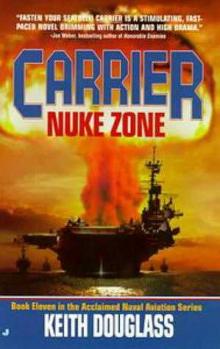 Nuke Zone c-11
Nuke Zone c-11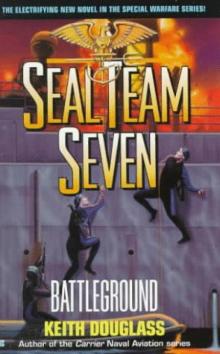 Seal Team Seven 6 - Battleground
Seal Team Seven 6 - Battleground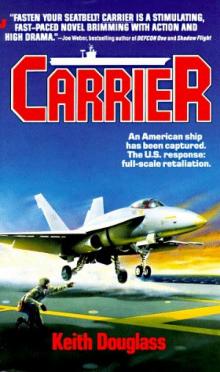 Carrier c-1
Carrier c-1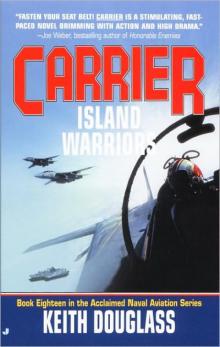 Island Warriors c-18
Island Warriors c-18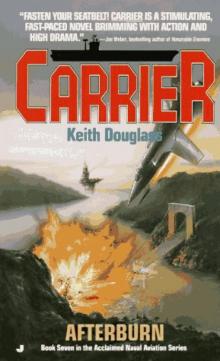 Afterburn c-7
Afterburn c-7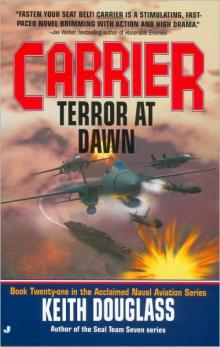 Terror At Dawn c-21
Terror At Dawn c-21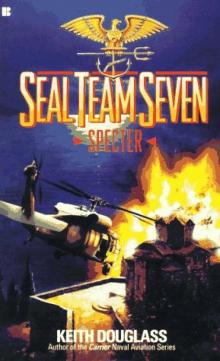 Specter sts-2
Specter sts-2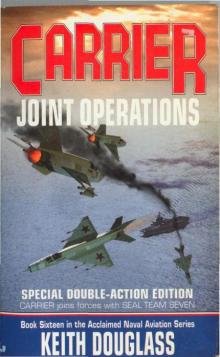 Joint Operations c-16
Joint Operations c-16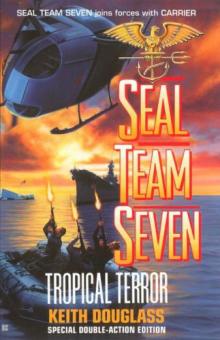 Tropical Terror sts-12
Tropical Terror sts-12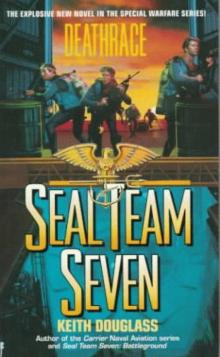 Seal Team Seven 7 - Deathrace
Seal Team Seven 7 - Deathrace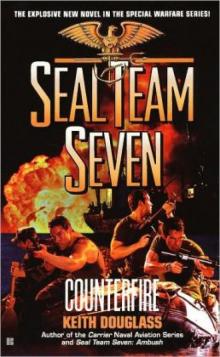 Counterfire sts-16
Counterfire sts-16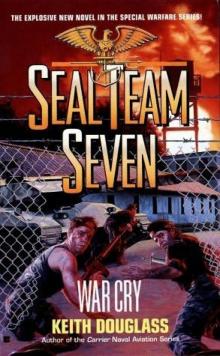 War Cry sts-9
War Cry sts-9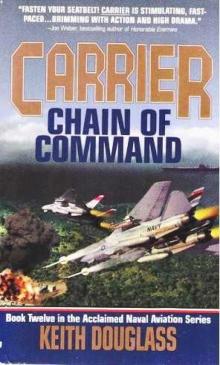 Chain of Command c-12
Chain of Command c-12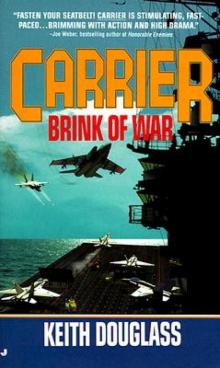 Brink of War c-13
Brink of War c-13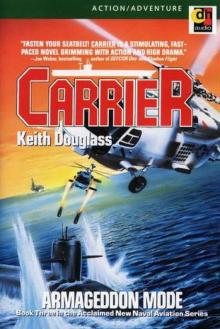 Armageddon Mode c-3
Armageddon Mode c-3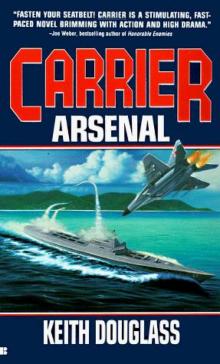 Arsenal c-10
Arsenal c-10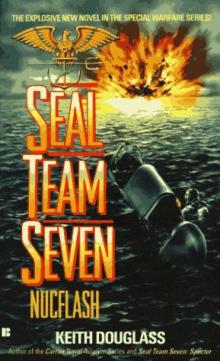 Nucflash sts-3
Nucflash sts-3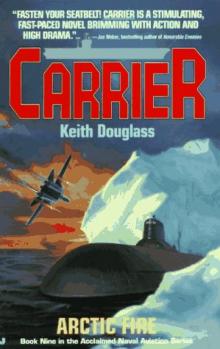 Arctic Fire c-9
Arctic Fire c-9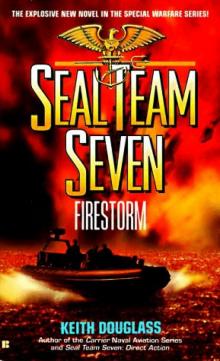 Firestorm sts-5
Firestorm sts-5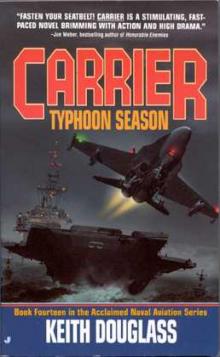 Typhoon Season c-14
Typhoon Season c-14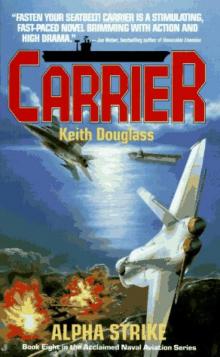 Alpha Strike c-8
Alpha Strike c-8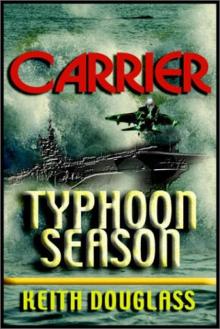 Carrier 14 - TYPHOON SEASON
Carrier 14 - TYPHOON SEASON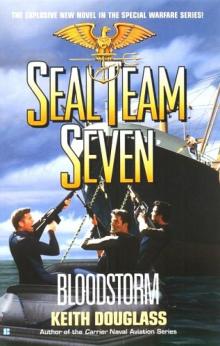 Bloodstorm sts-13
Bloodstorm sts-13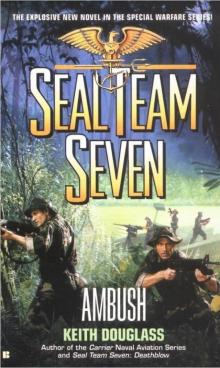 Ambush sts-15
Ambush sts-15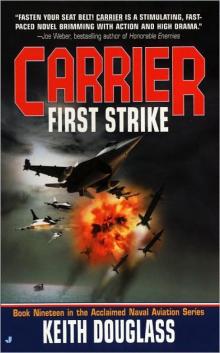 First Strike c-19
First Strike c-19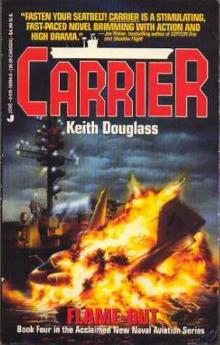 Flame Out c-4
Flame Out c-4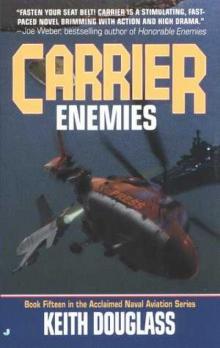 Enemies c-15
Enemies c-15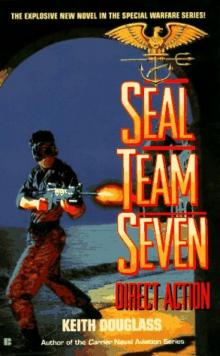 Seal Team Seven 04 - Direct Action
Seal Team Seven 04 - Direct Action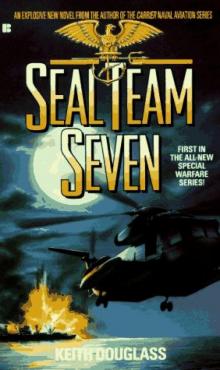 Seal Team Seven 01 - Seal Team Seven
Seal Team Seven 01 - Seal Team Seven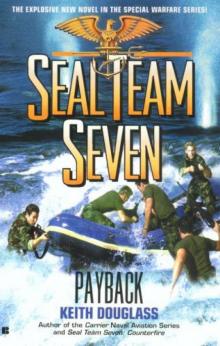 Payback sts-17
Payback sts-17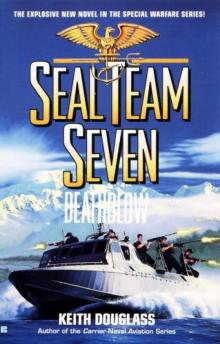 Death Blow sts-14
Death Blow sts-14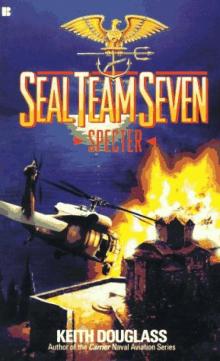 Seal Team Seven 02 - Spector
Seal Team Seven 02 - Spector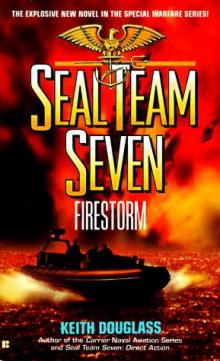 Seal Team Seven 5 - Firestorm
Seal Team Seven 5 - Firestorm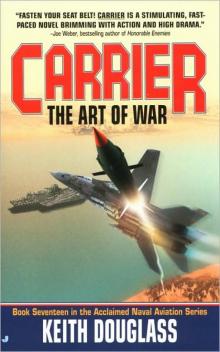 The Art of War c-17
The Art of War c-17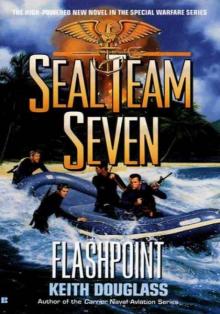 Flashpoint sts-11
Flashpoint sts-11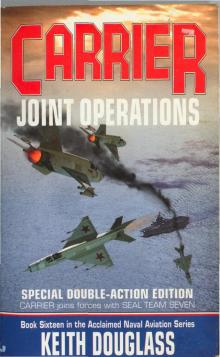 Carrier - Joint Operation Book 16
Carrier - Joint Operation Book 16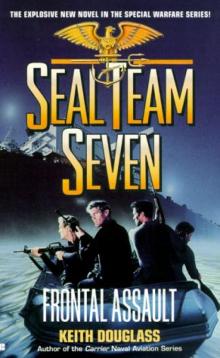 Frontal Assault sts-10
Frontal Assault sts-10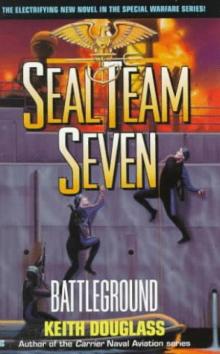 Battleground sts-6
Battleground sts-6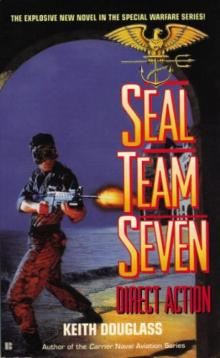 Direct Action sts-4
Direct Action sts-4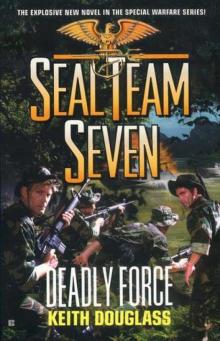 Deadly Force sts-18
Deadly Force sts-18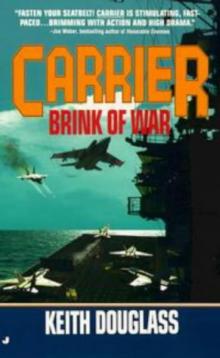 Carrier 13 - Brink of War
Carrier 13 - Brink of War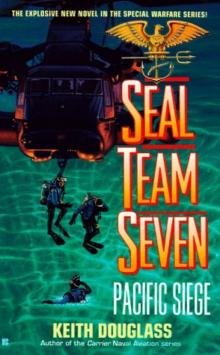 Pacific Siege sts-8
Pacific Siege sts-8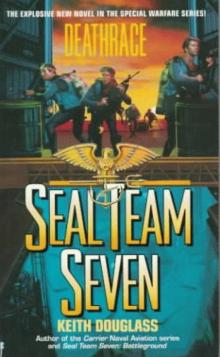 Deathrace sts-7
Deathrace sts-7